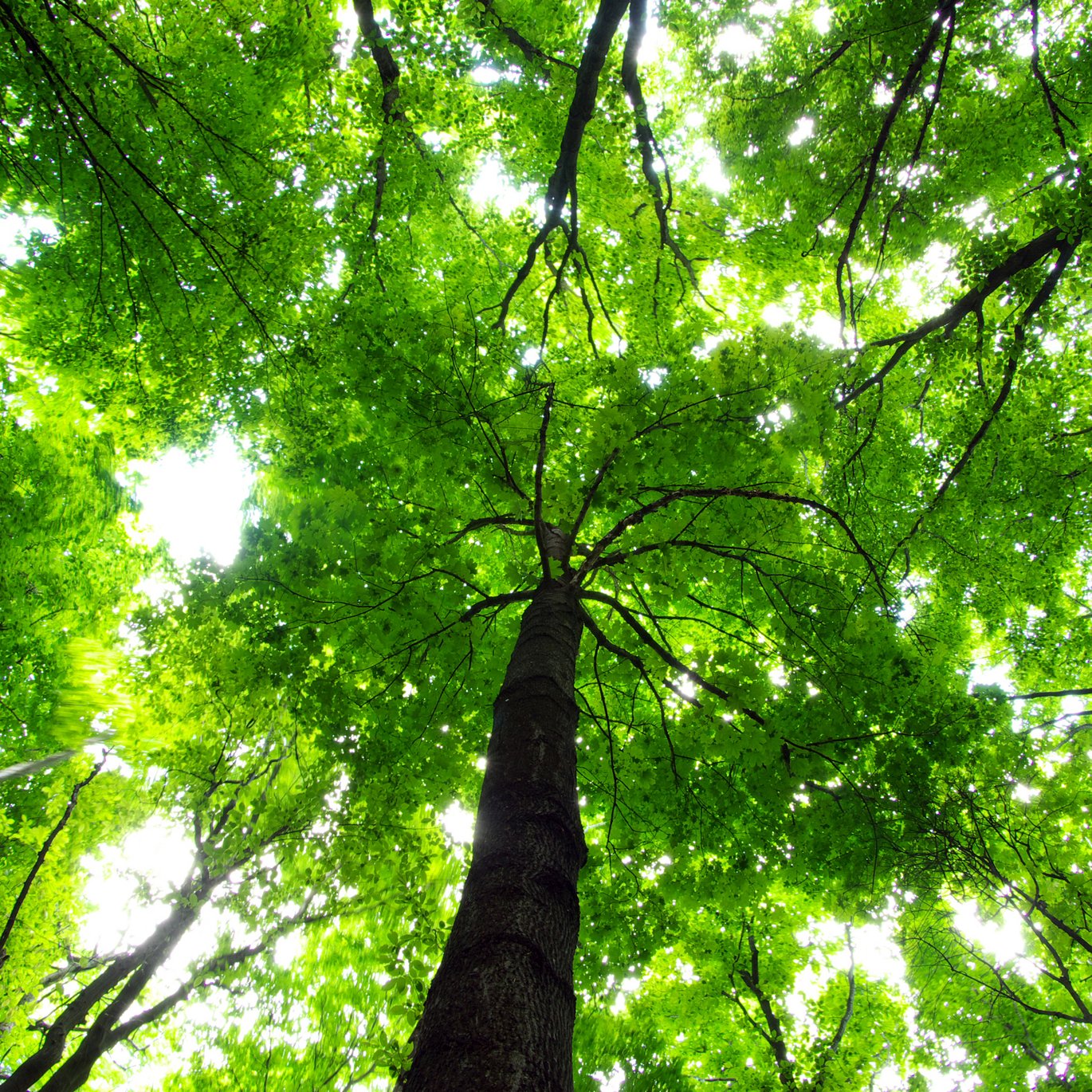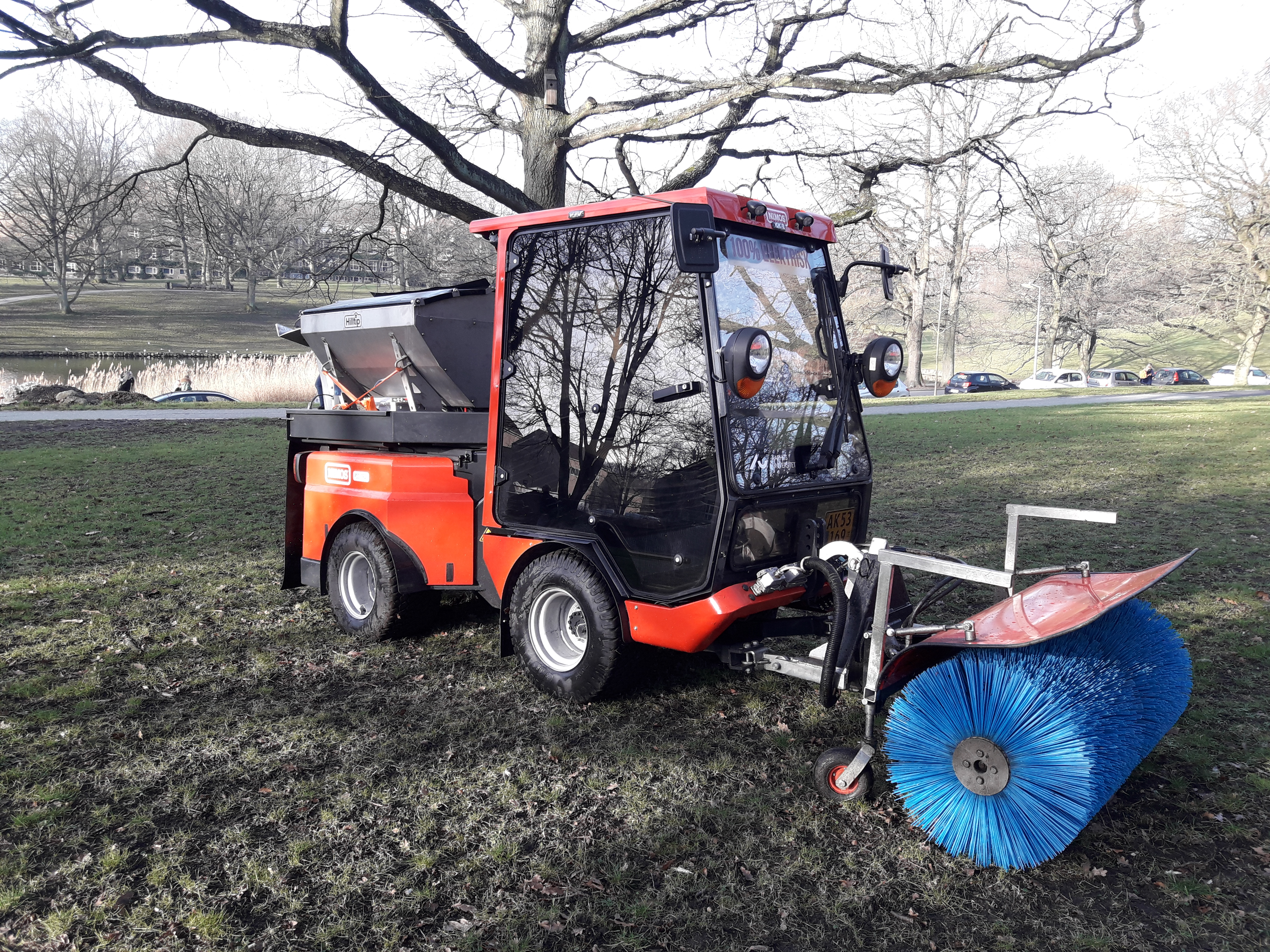Aarhus BSS is going green
New roofs and windows, new environmentally friendly vehicles and in time, an improved better waste management system that allows us to segregate our waste at work as we do at home. These are just some of the initiatives that will contribute to making Aarhus BSS a greener place to be, says Technical Manager Peter Bachmann Vestergaard.


Perhaps you have noticed that roofs and windows are being replaced in several older buildings at Aarhus BSS? That new underground waste containers are being established around campus, and that the noisy diesel machines in the University Park are being replaced by new and noiseless electrical machines?
These are all energy-saving initiatives that will contribute to making Aarhus BSS a greener place to be, says Peter Bachmann Vestergaard, who has been the technical manager at Aarhus BSS since August 2018. He has worked with energy improvements in the building industry since 1998, and as a project manager in the Danish Energy Agency under Svend Auken, a former Danish minister for the environment, he helped develop and introduce the energy labels that we still use today to pick the best product.
As part of the specific energy-saving initiatives, the university is currently replacing the old windows and roofs, says Peter Vestergaard:
“By replacing the windows we can cut the window-related energy consumption by half and thus reduce our heating costs significantly. The employees will also benefit from the new windows, as they create a better indoor climate by reducing the temperature fluctuations in the offices in the winter and the summer.”
From used coffee grounds to fertiliser
The costs of replacing the windows and roofs with new and energy-saving solutions are 100 per cent covered by the Danish Building and Property Agency. However, AU and Aarhus BSS have launched a number of energy-saving initiatives on their own accord. According to Peter Bachmann Vestergaard, universities have a responsibility for leading the way, because if we do not, who should, he asks rhetorically.
As part of the university’s ongoing replacement of vehicles, the old diesel machines in the University Park will thus be replaced by electrical machines that are far less noisy and pollutant. In addition, Aarhus BSS has initiated discussions between AU’s joint waste management committee and Aarhus Municipality on the introduction of a more environmentally friendly waste management system. The new system would allow for a better segregation of our waste, and this would be an important step in the right direction, says Peter Bachmann Vestergaard.
“By segregating our waste as work as we do at home, each employee can help ensure that more of our waste is being recycled and used for new products and doesn’t just end up in the incinerator. Imagine if we could recycle all the used coffee grounds that we just throw away each day at the university and turn them into manure. The market is there, and it would be great to enjoy a cup of coffee knowing that the coffee grounds are being recycled!”
The full details of the new waste management solution still need to fall in place, but the new system is expected to be introduced next year. The new underground waste containers - or Moloks as they are called - which are being installed around campus are thus geared towards the new system and cost just 5 to 10 per cent more than a standard Molok. The new waste management system is also expected to lead to lower renovation costs, as Aarhus Municipality will cover the cost of handling specific waste groups, says Vestergaard.
Would you like to know more about the green solutions at Aarhus BSS?
Technical Manager: Peter Bachmann Vestergaard
Email: pbv@au.dk
Tel.: +4587152363